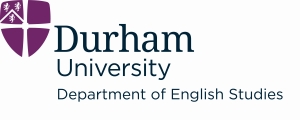Re-evaluating Woolf’s Androgynous Mind
Keywords:
Virginia Woolf, Modernism, Gender Studies, AndrogynyAbstract
No abstract available.Downloads
References
Burns, Christy L. “Re-dressing Feminist Identities: Tensions between essential and constructed selves in Virginia Woolf’s Orlando,” Twentieth Century Literature, Fall, 1994, http://www.findarticles.com
Dokou, Christina. “Androgyny’s Challenge to the ‘Law of the Father’: Don Juan as Epic in Reverse,” Mosaic: A Journal for the Interdisciplinary Study of Literature 30, (Sept 1997), http://lion.chadwyck.co.uk
Fassler, Barabara. “Theories of Homosexuality as Sources of Bloomsbury’s
Androgyny,” Signs. 5(2), Winter 1979.
Fayad, Mona. “Aliens, Androgynes, and anthropology: Le Guin’s critique ofRepresentation in The Left Hand of Darkness,” Mosaic: A Journal for the Interdisciplinary Study of Literature 30, (Sept 1997),http://lion.chadwyck.co.uk
Freud, Sigmund. On Sexuality. London: Penguin, 1991.
Gelpi, Barbara Charlesworth. “Sex as Performance with All the World as Stage,”
Mosaic: A Journal for the Interdisciplinary Study of Literature 30, (Sept 1997), http://lion.chadwyck.co.uk
Goldman, Jane. The Feminine Aesthetics of Virginia Woolf. Cambridge: Cambridge University Press, 1998.
Harris, Daniel. “Androgyny: The Sexist Myth in Disguise,” Women’s Studies 2 (1974).
Heilbrun, Carolyn. “Further Notes Towards a Recognition of Androgyny,” Women’s Studies: An Interdisciplinary Journal, 2 (Winter, 1974), Wendy Martin (ed.), London: Gordon and Breach Science Publishers Ltd, 1974.
Irigaray, Luce. The Irigaray Reader. Ed. Margaret Whitford. Oxford: Basil Blackwell, 1991.
Jones, Ellen Carol. “The Flight of a Word: Narcissism and the Masquerade of Writing in Virginia Woolf’s Orlando,” Women’s Studies 23 (April 1994). http://infotrac.galegroup.com
Karabdrikas, Carol Anne Costabile-Heming Vasiliki. “Experimenting with Androgyny: Malina and Ingeborg Bachmann’s Jungian Search for Utopia,” Mosaic: A Journal for the Interdisciplinary Study of Literature30, (Sept 1997), http://lion.chadwyck.co.uk
Marcus, Jane (ed.). New Feminist Essays in Virginia Woolf. London: Macmillan,
---. Virginia Woolf and the Languages of Patriarchy. Bloomington: Indiana University Press, 1987.
Minow-Pinkney, Makiko. Virginia Woolf and the Problem of the Subject. Brighton: Harvester Press, 1987.
Moi, Toril. What is a Woman? And Other Essays. Oxford: Oxford UP, 1999.
Plato. Symposium, Benjamin Jowett (trans.), http:classics.mit.edu.plato/symposium.html
Piggford, George. “‘Who’s That Girl?’: Annie Lennox, Woolf’s Orlando, and Female Camp Androgyny,” Mosaic: A Journal for the Interdisciplinary Study of Literature 30, (Sept 1997), http://lion.chadwyck.co.uk
Rado, Lisa. “Would the Real Virginia Woolf Please Stand Up? Feminist Criticism, the Androgyny Debates and Orlando”, Women’s Studies 26 (April 1997), http://infotrac.galegroup.com
Showalter, Elaine. A Literature of Their Own. London: Virago Press, 1982.
Topping Bazin, Nancy. Virginia Woolf and the Androgynous Vision. New York:Rutger’s University Press, 1973.
Woolf, Virginia. A Room of One’s Own, Oxford: Oxford UP, 1998.
---- Orlando, London: Penguin, 1993.
---- The Letters of Virginia Woolf, Vol. 5, Nicholson, Nigel (ed.), London: Hogarth Press, 1975.
Downloads
Issue
Section
License
Authors who publish with this journal agree to the following terms:
- Authors retain copyright and grant the journal right of first publication with the work simultaneously licensed under a Creative Commons Attribution-NonCommercial-ShareAlike 4.0 licence that allows others to share the work with an acknowledgement of the work's authorship and initial publication in this journal.
- Authors are able to enter into separate, additional contractual arrangements for the non-exclusive distribution of the journal's published version of the work (e.g., post it to an institutional repository or publish it in a book), with an acknowledgement of its initial publication in this journal.
- Authors are permitted and encouraged to post their work online (e.g., in institutional repositories or on their website) prior to and during the submission process, as it can lead to productive exchanges, as well as earlier and greater citation of published work. Authors may deposit the Submitted version; Accepted version (Author Accepted Manuscript); or Published version (Version of Record) in an institutional repository of the author's choice.

